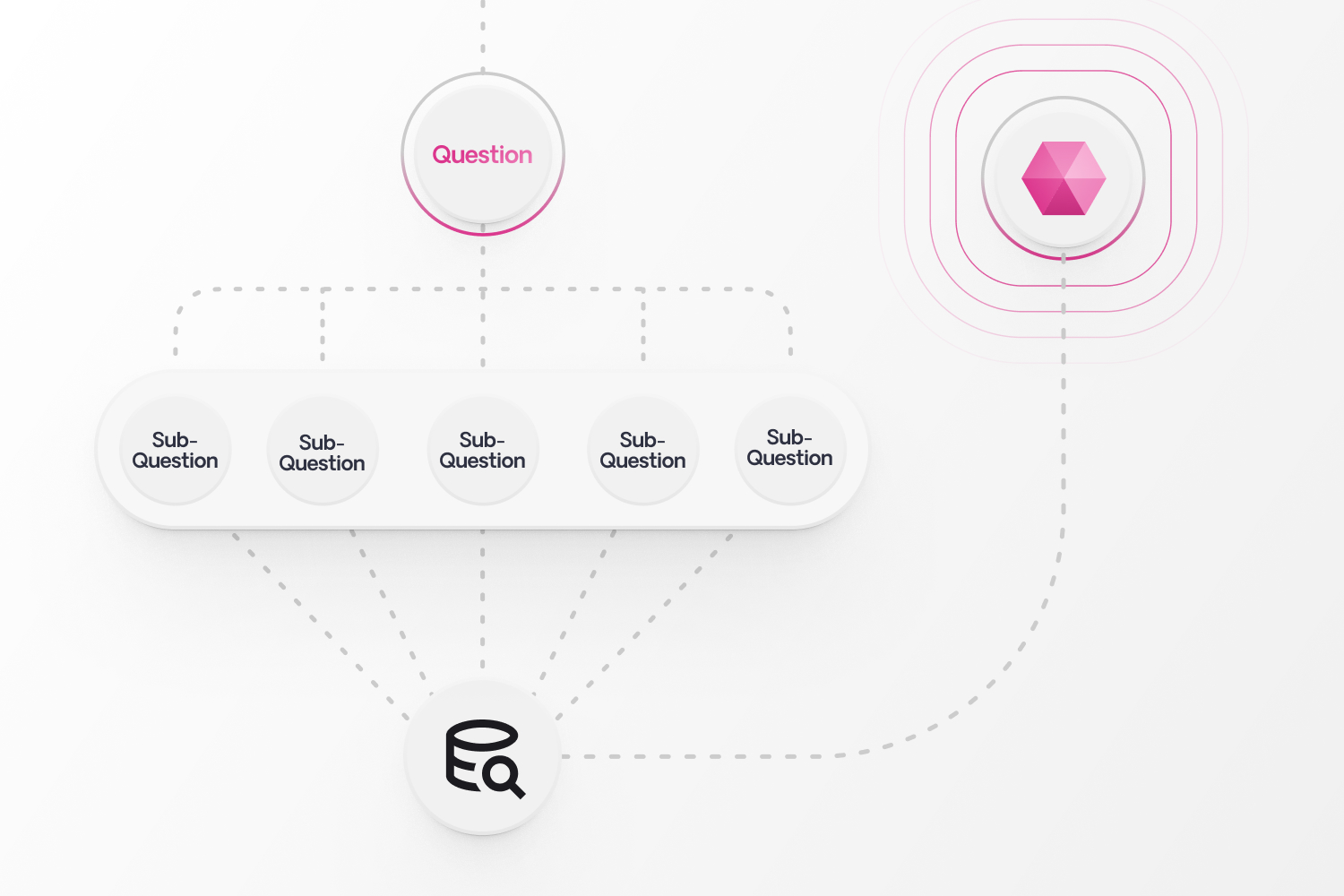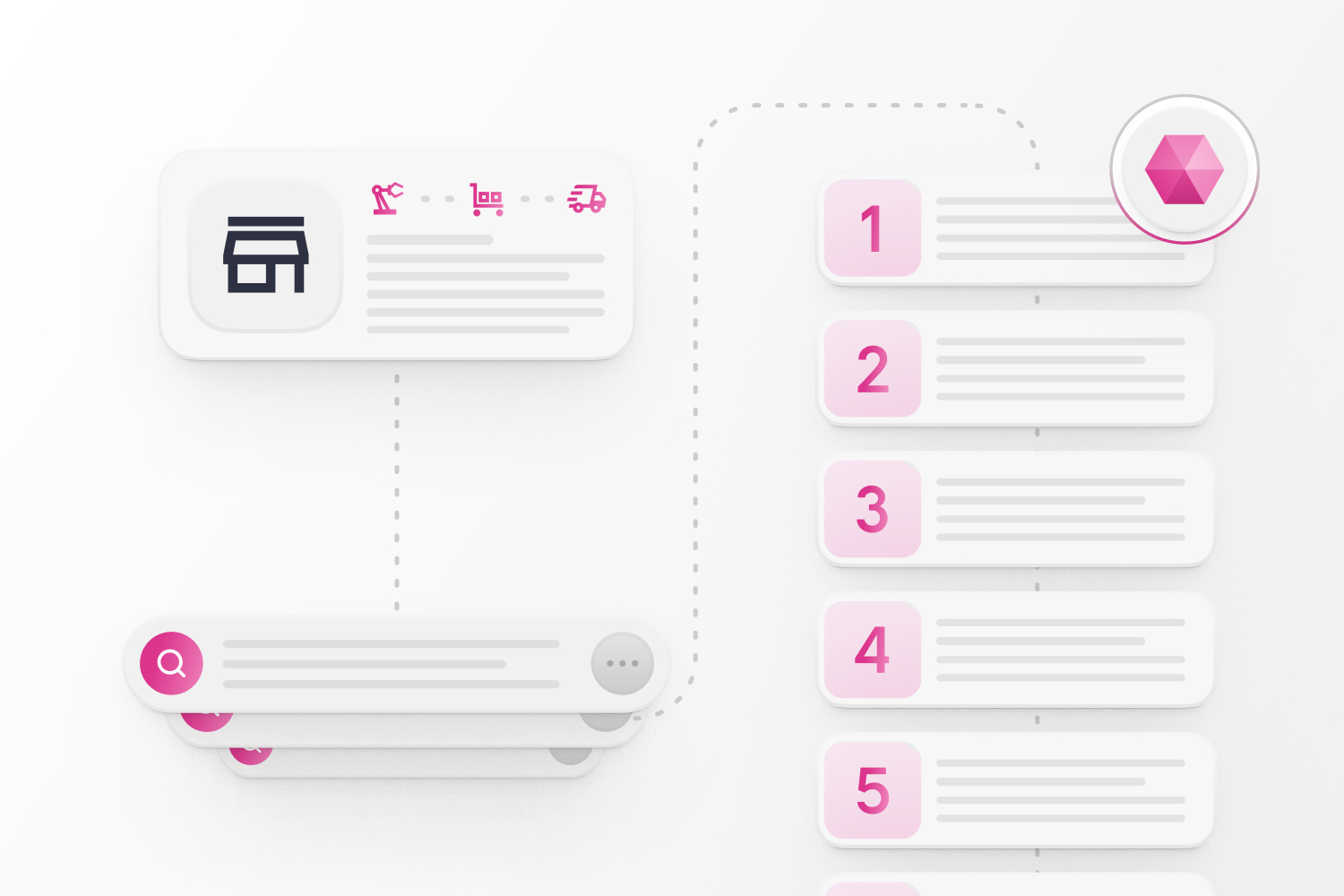Sixfold’s Take on AI Agents

Not sure what an AI agent is? You’re in good company. We sat down with Sixfold CTO Brian Moseley to unpack:
- What “agentic AI” really means
- Why it’s suddenly everywhere
- Why it matters for insurance underwriting
- How we’re putting this technology to work at Sixfold
The Definition Dilemma
What exactly are agents in the context of AI?
That’s harder to answer than it should be.
The industry hasn’t coalesced around a standard definition. According to swyx, a software engineer might say that an agent is “LLM calls in a for loop.” Pretty reductive. If you buy them a beer, they’ll probably start talking about tools, memory, and LLM-based control flow - fascinating but deeply technical concepts that don’t offer much pragmatic insight.
Basically, an agent can accomplish a complex task by choosing how to progress through a complex, evolving process without ongoing human input.
For my money, Addy Osmani offers the most useful working definition. He says that “AI agents [...] are autonomous systems designed to perceive their environment, make decisions, and take actions to achieve specific goals, all while maintaining context and adapting their approach based on results.” Basically, an agent can accomplish a complex task by choosing how to progress through a complex, evolving process without ongoing human input. Contrast this with the typical chatbot interaction, where a human submits a sequence of one-shot requests.
How do you define the difference between a workflow and an agent?
The key difference is that a workflow is consistent and predictable. Given the same set of inputs, it will proceed the same way every time. A workflow can be dynamic, with conditional or looping steps, but it is inherently deterministic.
An agent’s process is driven by probabilities. Even if given the same inputs twice in a row, an agent may choose a different plan of attack each time and will almost certainly generate different outputs on every run.
An agent’s process is driven by probabilities. Even if given the same inputs twice in a row, an agent may choose a different plan of attack each time and will almost certainly generate different outputs on every run. You can reason about what is likely to happen, but there are no guarantees. You have to be comfortable with a range of outputs and have some tolerance for error.
The flexibility is exactly what makes agents so powerful, and why they’re now at the center of so many AI conversations.
Why Everyone’s Talking About Them
Why do you think agents have become such a hot topic?
Businesses are always looking for ways to do more with their resources. First, we automate repetitive tasks that are consistent and predictable from one execution to another. But once those possibilities have been exhausted, the next leap is enabling software to handle more complex, reasoning-based work.
If this is successful, we can offload even more, not just the rote work that is often done on autopilot, but also the tasks that require real thinking.
If this is successful, we can offload even more, not just the rote work that is often done on autopilot, but also the tasks that require real thinking. That’s the promise.
But it gets even better. We can envision a world where, as the cost of intelligence is driven down, every worker becomes a manager of a team of agents, setting goals, reviewing work, testing many ideas simultaneously, and picking the best with high confidence. This goes beyond improving productivity — it’s evolution.
Where Agents Fit Into Underwriting
Where do you see agents making an impact in underwriting?
The underwriting process itself is relatively structured and rules-based. But within that structure, underwriters deal in nuance, like recognizing when a 10-story building without sprinklers is still acceptable due to fire-resistive construction and strong safety measures, or approving a contractor engaged in high-risk work because of rigorous safety protocols and certified staff. They have to understand a risk so completely that they can craft a very thoughtful quote and risk management solution for the customer.
The underwriting workflow itself might remain orchestrated traditionally, but each step, the "needle-in-the-haystack" moments, could be powered by intelligent agents making context-based decisions.
That’s where agents come in. The underwriting workflow itself might remain orchestrated traditionally, but each step, the "needle-in-the-haystack" moments, could be powered by intelligent agents making context-based decisions. And instead of one underwriter doing all the work, an entire network of specialized agents can be turned loose on the risk to each solve a specific, context-rich problem, then synthesize the findings.
Agents at Sixfold
How are we using agents across Sixfold today?
The most obvious starting point is our Q&A feature. It starts with pre-set underwriting questions, scanning applicant data to find the answers, and summarizing them for the underwriter. While the feature began life as a simple one-shot LLM interaction, it has evolved over time. Now, if the input is complex, the system breaks it down into simpler sub-questions, answers each separately, and then summarizes those outputs into a final response.

Next up is our Research Assistant, an agent that performs targeted web searches depending on the context of the business. For a given question, it decides how to search, what sources to consult, and how to rank results. We anticipate the research assistant will boost our ability to answer 30% more critical questions, giving underwriters a more complete understanding of risk before quoting.

We’re researching ever-more advanced techniques for document extraction. We’re experimenting with agentic approaches to classifying documents and routing to customized pipelines that can better extract information from complex structured documents like loss runs—use cases where traditional methods often fall short.
The Future of Agents
Are there limitations to agents today?
Technically, we’re still in the early days. As discussed earlier, we can’t even agree on a shared definition yet. And the methods by which agents interact with their environment (MCP) and each other (A2A) are evolving quickly.
But there are plenty of tools that help engineers build and deploy agents, singly or in swarms, and the landscape is rich and competitive. Amazing engineers like Simon Willison are doing yeoman’s work to help us understand the new models, tools, and techniques that pop up every day. It’s a great time to be a builder!
I think the bigger challenge is societal. What does the world look like when every person has a thousand agents at their fingertips? How will we experience the changes that advance us to that point? What will work - and leisure - look like?
Are there historical tech shifts you’d compare this to, like the internet or the iPhone?
Those were 10x changes, but what we’ve seen and will see in the five years after ChatGPT feels like 100x or even 1,000x. I don’t think anything else in modern history really compares.
There’s a lot of agentic hype right now, and some of it feels over the top, like the idea that AI will be writing most code in just a few months. You have to take some of this stuff with more than one grain of salt.
At the end of the day, it has to make sense for underwriters. We’re all about using the best tool for the job, regardless of what everybody happens to be talking about at the moment.
But overall, this feels different. Even if I’m naturally skeptical about the flavor of the day,I think there’s something real and lasting here, and we are leaning heavily into it at Sixfold. On top of what I mentioned earlier, we’re working through several new concepts that could make it into our roadmap.
That said, we’re not doing agents for the sake of it. At the end of the day, it has to make sense for underwriters. We’re all about using the best tool for the job, regardless of what everybody happens to be talking about at the moment.
References
latent.space/p/agent
docs.google.com/presentation/d/1SWoBIvTQu__uNEvSawmNcROiUx-n86O_fP0arZcTGb8/edit#slide=id.g2d9839ccb1c_0_0
addyo.substack.com/p/what-are-ai-agents-why-do-they-matter
huyenchip.com/2025/01/07/agents.html

